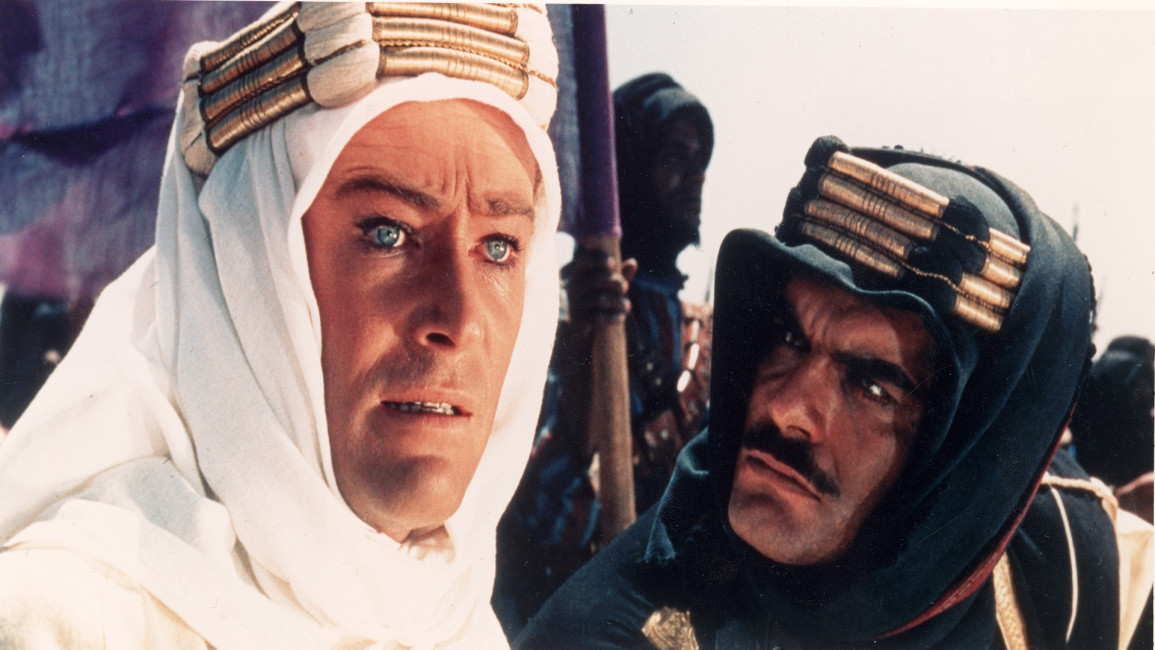Follow us on Facebook, Twitter and Instagram to stay connected
Lawrence of Arabia’s Saudi home restored in new swipe at 'Ottoman' Turkey
Colonel Thomas Edward Lawrence's Red Sea residence in Yanbu played a role in the 1916 Great Arab Revolt against the Ottoman Empire, and will now be renovated and opened to tourism.
Critics say the move by Riyadh is part of a recent revision of kingdom's history designed to portray Turkey as an expansionist power and link it to its Ottoman colonial past, which saw much of the Middle East as part of its domains.
The Yanbu port was a site of strategic importance for the Arab and British forces fighting against the Ottoman Empire during First World War, and local reports say historians had called for the protection of the building.
The house had fallen into disrepair, and an official had been forced to deny it was haunted following local fears.
"The house is now a registered part of the Yanbu’s historical heritage and tourists will be able to visit it," he said.
This latest move by Saudi Arabia to restore the home of TE Lawrence, who played a role in the Arab Uprising, comes as the kingdom seeks to subvert the cultural and historic legacy of the Ottoman Empire in the country.
This isn't the first instance of Saudi Arabia pushing a decidedly anti-Turkish sentiment. In 2018 Saudi-owned MBC made the controversial decision to pull popular Turkish soap operas from its screens.
The decision came after its chairman, Waleed bin Ibrahim Al-Ibrahim, was released following his arrest in Crown Prince Mohammed bin Salman's crackdown on Saudi Arabia's rich and powerful.
Turkish soap operas were popular in the region and Saudi viewers met the move with criticism.
Many at the time blamed the decision on politics, and the blockade of Qatar less than a year prior.
In 2018, Emirati Foreign Minister Abdullah bin Zayed Al-Nahyan reposted a comment that accused Fahreddin Pasha, a 20th Century Ottoman commander, of robbing and looting the holy city of Medina.
At the time Turkey responded to the slight by renaming the street where the UAE embassy is located as "Fahreddin Pasha Street".
In 2019 Saudi Arabia's ministry of education altered its history textbooks to include a segment referring to the Ottoman presence in the Arab world as an "occupation" rather than a "caliphate", and claimed Ottomans divided the Arab world.
Saudi-Turkish relations on a decline
Relations between Saudi Arabia and Turkey declined after the start of the 2011 Arab Spring, which saw Ankara welcome the pro-democracy uprisings but Riyadh and Abu Dhabi work against them.
President Recep Tayyip Erdogan's decision to endorse Egypt's first democratically-elected
government, led by Muslim Brotherhood's Mohammed Morsi, paved the way for disagreement.
Read more: Saudis claim last Ottoman governor planned to 'steal Prophet Muhammad's body'
Turkey’s ongoing support for Qatar comes after a blockade was unleashed on the Gulf state by Saudi Arabia, the UAE, Bahrain and Egypt.
Most recently, the murder of journalist Jamal Khashoggi, a prominent critic of Crown Prince Mohammed bin Salman has created another point of tension between the two countries.
Khashoggi was killed by a team of Saudi agents inside the kingdom's consulate in Istanbul.
Earlier this week Turkey said a Saudi court ruling overturning five death sentences in the 2018 murder of journalist Jamal Khashoggi did not meet global expectations.
"The final verdict that a Saudi court issued today regarding journalist Jamal Khashoggi's execution inside the Kingdom's consulate in Istanbul fell short of meeting the expectations of Turkey and the international community," Fahrettin Altun, communications director at the Turkish presidency, wrote on Twitter.
In July of this year twenty Saudi nationals went on trial in absentia in Turkey for the murder, including two former aides to the prince, who denies involvement.
This latest move by Saudi Arabia to resurrect an anti-Ottoman figurehead demonstrates a soft-power approach to hostile sentiment against Turkey.



